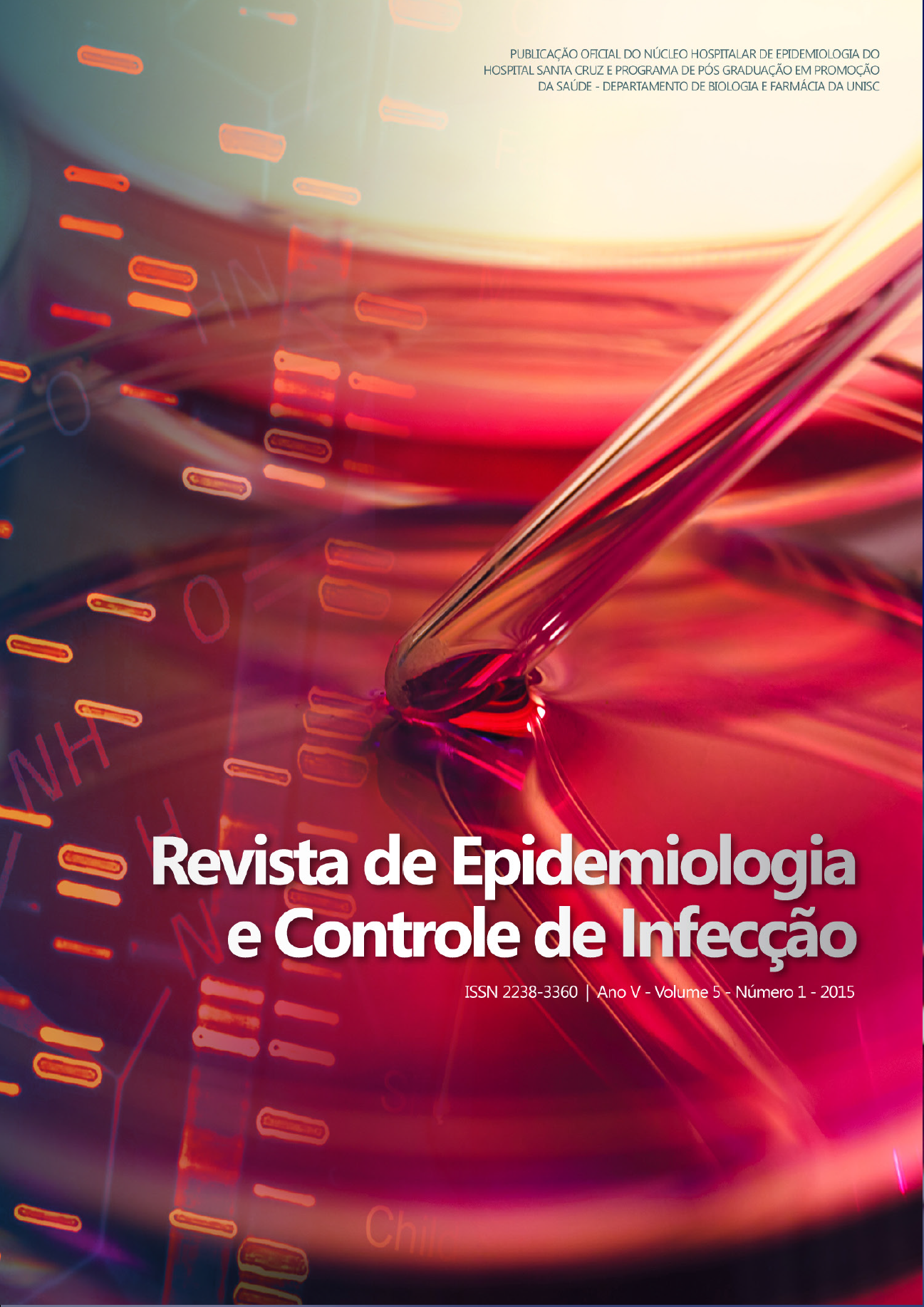Hospitalization and complications in elderly patients admitted at infectious disease reference hospitals.
DOI:
https://doi.org/10.17058/reci.v5i1.5313Abstract
Backgound and Objectives: Mortality from infectious diseases has declined; however, it remains a challenge for the National Public Health due to continuing high levels of diseases related to poverty and social exclusion. Thus, the objective of the study is to identify the causes of hospitalization among the elderly and the observed complications in an infectious disease reference hospital in Rio Grande do Norte, Brazil and evaluate the hospitalization costs. Methods: Cross-sectional study of elderly patients admitted at the Hospital Giselda Trigueiro from 2005 to 2010, through analysis of medical records. The dependent variables were: “consequence of admission” and “financial cost”. The chi-square test was applied to determine the association between variables and the analysis of the independent effect of other variables on the outcome was performed by multiple logistic regression. Results: Mean age was 72.4 years, with a predominance of the male gender. Prevalent diagnoses: nontuberculous lung infection; skin and soft tissue infections and pulmonary and extrapulmonary tuberculosis. In the multivariate analysis with the “consequence of admission” variable, the following were significant: mechanical ventilation, nasogastric and enteral tube, upper gastrointestinal bleeding and acute renal failure. For the “financial cost” variable, nontuberculous lung infection, pulmonary and extrapulmonary tuberculosis, urinary catheter and mechanical ventilation variables remained significant. Conclusions: The prevalence of respiratory infections indicates the need for preventive measures that must occur at the level of primary health care, consequently reducing the demand for specialized care. KEYWORDS: Aged; Hospitalization; Health of the Elderly; Hospital costs; Communicable diseases.Downloads
Downloads
Published
How to Cite
Issue
Section
License
The author must state that the paper is original (has not been published previously), not infringing any copyright or other ownership right involving third parties. Once the paper is submitted, the Journal reserves the right to make normative changes, such as spelling and grammar, in order to maintain the language standard, but respecting the author’s style. The published papers become ownership of RECI, considering that all the opinions expressed by the authors are their responsibility. Because we are an open access journal, we allow free use of articles in educational and scientific applications provided the source is cited under the Creative Commons CC-BY license.


